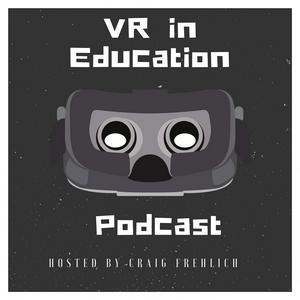Hello everyone, welcome to another exciting episode of VR in Education, where we dive into how virtual reality is being used for teaching and learning in real, practical, and meaningful ways.
Today, we’re exploring the power of immersive storytelling and what it means to use VR not just to inform, but to help people truly care. I’m joined by two guests—Ryan D’Souza, a human rights advocate and immersive storytelling producer, and Thikran Mato, a Yazidi genocide survivor who has been deeply involved in bringing this work into schools. Together, we’ll unpack how experiences like Nobody’s Listening use VR to foster empathy, responsibility, and reflection around complex global issues—and what this means for educators thinking about VR for good.


